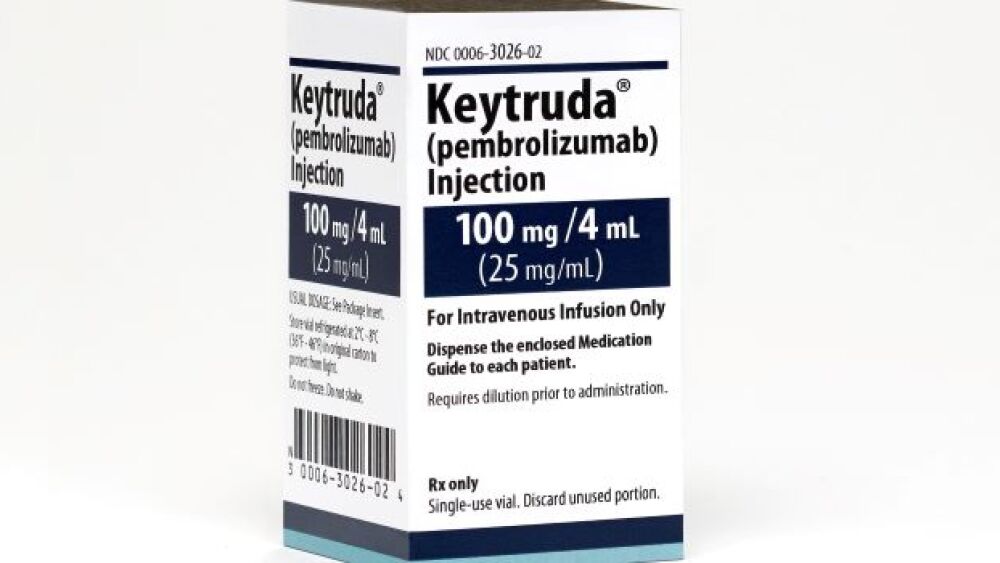Keytruda (pembrolizumab) won another regulatory victory, making it the first checkpoint inhibitor approved by the U.S. FDA for first line treatment of patients with locally advanced or metastatic esophageal or gastroesophageal junction carcinomas regardless of PD-L1 expression.
Copyright © 2009-2020 Merck Sharp & Dohme Corp., a subsidiary of Merck & Co., Inc., Kenilworth, N.J., U.S.A. All rights reserved.
Merck’s blockbuster Keytruda (pembrolizumab) won another regulatory victory, making it the first checkpoint inhibitor approved by the U.S. Food and Drug Administration (FDA) for first-line treatment of patients with locally advanced or metastatic esophageal or gastroesophageal junction carcinomas regardless of PD-L1 expression.
Keytruda was previously approved in patients with recurrent, locally advanced, or metastatic PD-L1-positive squamous cell carcinoma of the esophagus, as a second-line treatment. The label expansion, in combination with chemotherapy, means anti-PD-1 Keytruda can now be used for certain esophageal and gastroesophageal junction (GEJ) cancers that can’t be surgically resected, regardless of histology or PD-L1 expression.
The new approval is based on data from the Phase III KEYNOTE-590 trial of 749 patients with esophageal or GEJ carcinoma, presented at ESMO Virtual Congress 2020 in September 2020.
In the trial, the combination of Keytruda with fluorouracil and cisplatin improved overall survival (OS), progression-free survival and objective response rate, compared to chemotherapy alone or fluorouracil and cisplatin alone . The combination reduced the risk of death by 27% and the risk of either disease progression or death by 35%.
Another anti-PD-1 checkpoint inhibitor, Opdivo (nivolumab), was approved as a second line therapy for patients with esophageal squamous cell carcinoma last year.
Keytruda is approved in U.S. for at least 15 other cancers, including melanoma, non-small cell lung cancer, and classical Hodgkin lymphoma.
This is the first U.S. label expansion for Keytruda since November, when the FDA approved it for patients with PD-L1-positive recurrent and metastatic triple-negative breast cancer (TNBC). But it’s unlikely to be the last.
The checkpoint inhibitor is in ongoing Phase III trials in bladder cancer, prostate cancer, ovarian cancer, mesothelioma cancer, biliary tract cancer and liver cancer. Merck is also running confirmatory Phase III trials in already-approved indications, including patients with cervical cancer and small cell carcinoma.
And last week, Merck and Eisai presented positive initial data from a confirmatory Phase III trial for Keytruda with Lenmiva, Eisai’s tyrosine kinase inhibitor, in patients with advanced endometrial cancer following platinum chemotherapy. The combination is already approved for locally recurrent unresectable or metastatic TNBC.
But not all recent news has been positive for Keytruda. Merck announced in March 1 it was voluntarily withdrawing Keytruda for patients with metastatic small cell lung cancer who had progressed on or after platinum-based chemotherapy, based on failure to improve OS in a confirmatory Phase III post-marketing trial.






